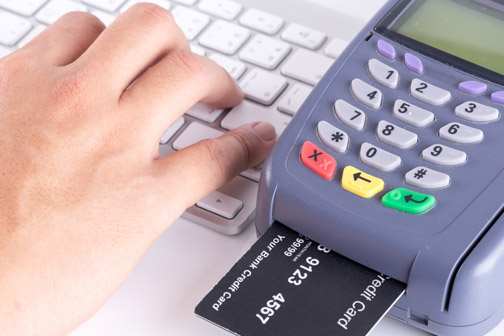

Most of the credit card holders I know have missed their credit card bill payment at least once in their lifetime, and many of them ended up paying a high price for those missed payments. Of them, many have now become paranoid about credit cards. Frankly, there is no reason why you should be averse to adopting or using a credit card. As with every other asset, credit cards can be a boon if handled well. However, if you fail to adhere to cards’ timelines, the consequences can be difficult.
Let’s go through some of the consequences of late or non-payment or part-payment of credit card bills.
Late fee:
You will pay a hefty late fee if you pay your bill after the due date. This fee will also be charged if you pay less than the minimum amount payable by the due date. The late fee would be charged by the bank in your next credit card bill. However, in a recent move, the Reserve Bank of India (RBI) has directed banks to charge late fee only if the payment has been due for more than three days after the due date.
Heavy interest on outstanding bill amount:
A lot of people believe that if they pay the minimum amount payable, no interest would be charged on their outstanding bill amount. However, in reality, you will pay interest on the outstanding amount starting from the payment due date. The rate of interest cost can be as high as 45% annualized. Suppose, your bill is generated on 4th November (payable by 24th November) for Rs.10000, and your minimum amount payable is Rs.1500. Now, even if you pay Rs.1500 by 24th November, you would still be liable to pay interest on Rs.8500, starting from 25th November till the date on which you repay the rest of that amount.
Higher rate of interest:
The interest rate on your outstanding bill may also increase if you don’t pay the minimum amount payable by the payment due date. The interest rate on cash withdrawal or regular purchases may also increase if you continue to make purchases from the credit card after defaulting on the bill payment.
Withdrawal of interest-free credit period:
Your defaults on card payments can lead to withdrawal of interest-free credit period from your card. It refers to the maximum period available to clear your credit card dues, depending on the day of the transaction and your monthly billing cycle. Interest-free credit period can be anywhere between 20-50days. This interest-free credit period is the biggest advantage of using a credit card as the bank is actually financing your purchase for that interest-free period. However, the bank may withdraw this feature if you do not make full payments on your due date and interest would be charged on your fresh transactions from the subsequent billing cycle.
Understanding interest-free credit period
Adverse effect on your credit score: Your credit score determines your credit worthiness and this score is often used by banks or other lenders to evaluate your loan or credit card applications. Defaults on your credit card adversely affect your credit score. Further, your credit score will still be affected even if you pay the minimum amount due. Your bank will report your defaults to credit information companies, which in turn will include them in your credit score. Therefore, a poor credit score can become one of the reasons for the rejection of your credit card or loan application. A poor credit score can also result in higher interest rates for loans being offered to you. However, RBI issued a notification on July 2015 wherein it asked banks to report defaults to credit information companies only if a customer has not paid the bill within 3 days of payment due date.
Decrease in credit limit:
Frequent defaults in credit card bill payments may decrease your credit limit, which will restrict your spending capacity in future.
As you can see, the combined effect of these consequences can adversely affect your financial position and will definitely hit your credit score. Note that recovering from this can take a significant amount of time. Therefore, it is best to make your credit card payments in full, always. However, if your circumstances are such that you cannot make full payment on time, get in touch with your bank and communicate the issue so that the bank can reschedule the due payment to a date on which you will be able to pay off your dues.
By Naveen Kukreja, Director, PaisaBazaar.com
(Published in Financial Express Online and Yahoo Online on 22 Nov 2015)